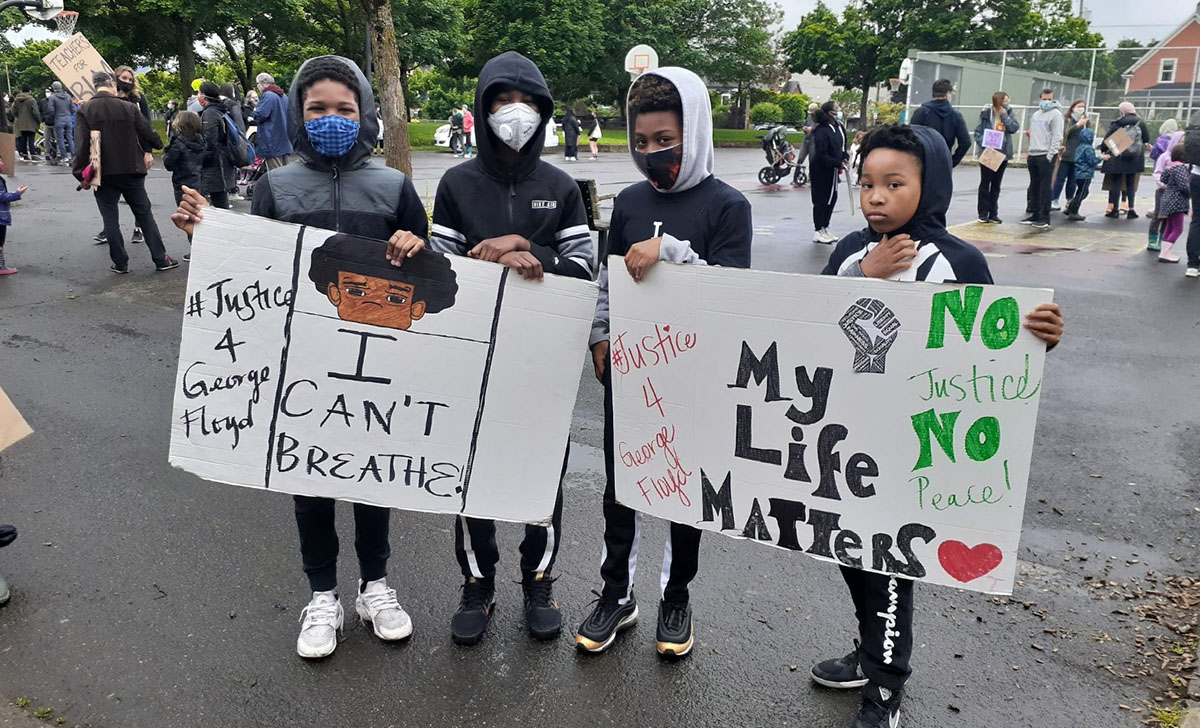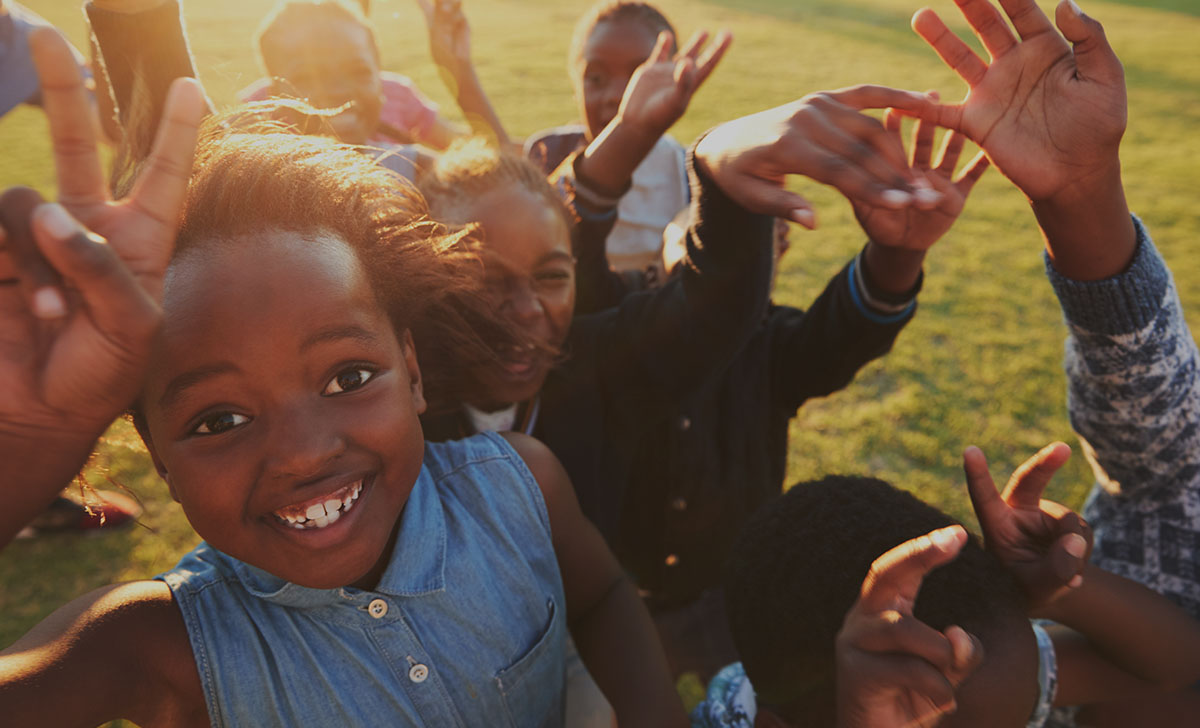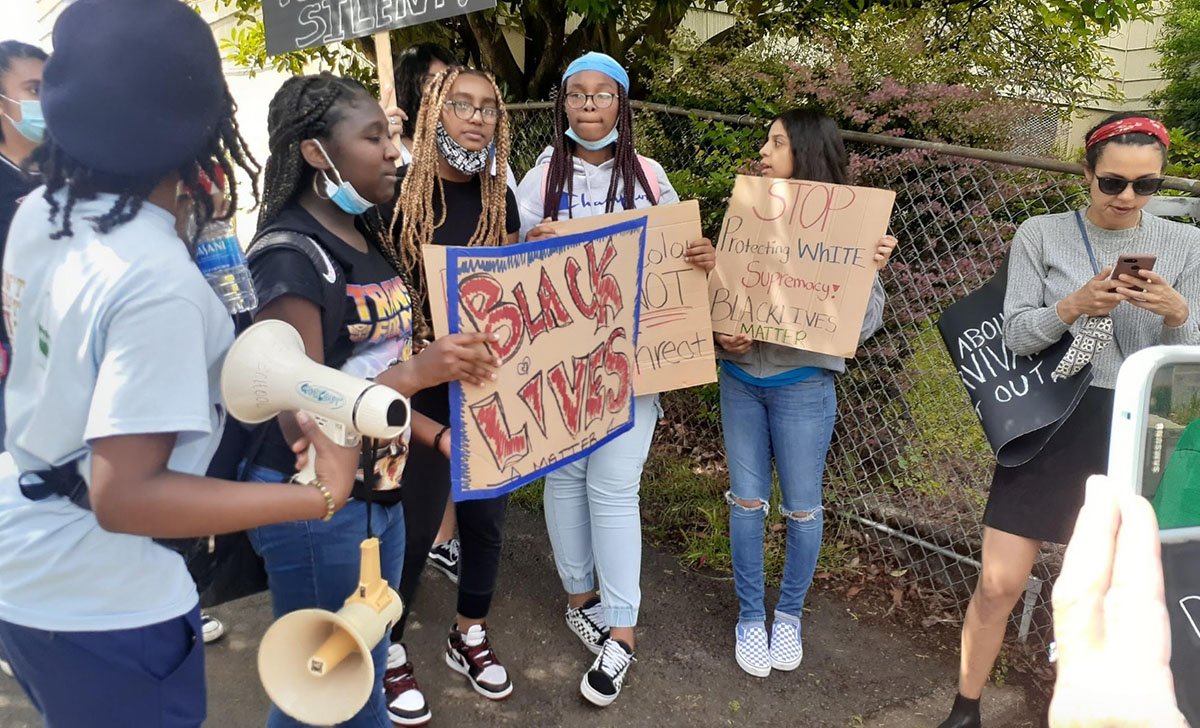The terrible truth is that racism continues to permeate our American societies and institutions. You can see the effects very early, as even in our K-12 schools there are stark differences between races in school performance as well as in doled out punishments (seen in higher rates of detention and suspension among communities of color, for example). By acknowledging this we are not saying that there is no hope; that we have no choice but to abandon America’s Black youth to weather interpersonal and institutional racism alone.
In fact, research shows that families and broader communities can provide a lot of protection for racial identities and self-image, helping adolescents to better withstand racism’s effects. In the long run, this helps to instill adolescents with the knowledge that they are not the problem, their skin tone is not the problem. Society is the problem when it treats them poorly because of their race. Parents and communities can and do “racially socialize” their adolescents—they teach them to be proud of their race and their heritage, while also alerting them to challenges they may face from being racialized in America, and teaches them how they may best deal with these challenges. Good self esteem and racial socialization have further been found to be linked to academic achievement, resistance to peer pressure, and risk avoidance. All in all, family and community efforts to help kids feel valued and teach them strategies for dealing with racism really does help them to thrive, in spite of the greater obstacles that they face.[1]
Community Chest is a growing part of these beneficial communities right here in Portland, Oregon. We are focused specifically on the health of minority youth in the city, especially Black, Latinx, and Indigenous youth. We also take a holistic approach to health and understand that mental and emotional health are just as important to your overall well being as your physical health is. And we understand that the more avenues and communities that our youth have to speak openly and honestly about the challenges they face and how to overcome them, the more opportunities they have to build self esteem, the happier and healthier they will be throughout the course of their lives.
We offer mentorship to help youth on a one-on-one basis. We provide a listening ear, and can also use the wisdom of our own experiences to offer advice and help our mentees to advocate for themselves and for their peers. Through this, they gain self confidence and come to understand the responsibilities they have to themselves and to their own communities.
As we grow as an organization, we hope to reach even more Portland youth in the future and help meet their specific needs. We know that gender and sexuality have profound effects on people’s lives, especially when combined with a racialized identity, and that they offer their own particular obstacles. In the future, we plan to have more targeted affinity groups and programming fit especially to serve the needs and strengthen the community of LGBTQ+ youth of color.
Young people are our future, and they all deserve to have happy and healthy lives. We will continue to support our kids and our communities so that we may all flourish.
Please reach out if you would like to get involved with Community Chest as either a participant or a volunteer, we would love to hear from you.
-Community Chest
[1] Berkel, C., Murry, V. M., Hurt, T. R., Chen, Y., Brody, G. H., Simons, R. L., Cutrona, C., & Gibbons, F. X. (2008). It takes a village: Protecting rural African American youth in the context of racism. Journal of Youth and Adolescence, 38(2), 175–188. https://doi.org/10.1007/s10964-008-9346-z




